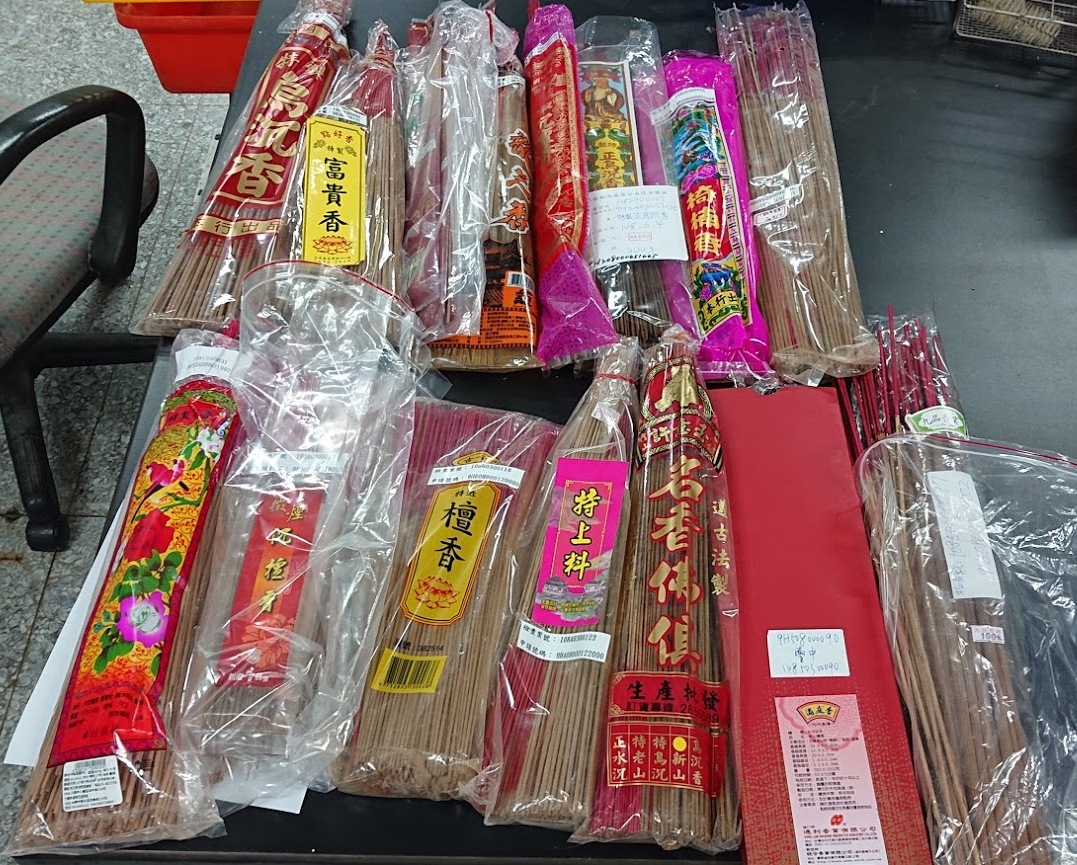BSMI inspects incense products, safeguards consumer health
- Date:2019/11/22
- Hits:4446

The Bureau of Standards, Metrology and Inspection (BSMI) has always been safeguarding consumer health through inspection based on scientific data and the bureau does not make any announcement without scientific verification. Regarding recent news reports on incense product standard, the BSMI would first of all like to express gratitude to all who paid attention to news and note that issues concerning consumer health will be approached with a humble and rigorous attitude. Taiwan’s CNS standard regarding incense specifies tests on volatile organic compounds (VOCs including benzene, toluene, xylene and dichlorobenzene) and heavy metals such as lead and cadmium. The bureau takes the health risks of incense use seriously and has been conducting annual market inspection on incense products since 2008. Inspection results show that 97.7 percent of the sampled items have met the national VOC standard while 94.7 percent of the sampled items did not show traces of heavy metal (regarding items that showed traces of heavy metal, the level is lower than both the CNS and GB limit values).
In response to accusations that Taiwan’s incense product CNS standard is looser than its Chinese counterpart, the BSMI initiated a market inspection to safeguard consumer health and studied the Environmental Protection Agency’s (EPA) commissioned project report and the Chinese GB standard on incense products. The bureau found out that the test methods of VOCs differ in the CNS and GB standards and thus the limit values cannot be directly compared. The commissioned project report followed the CNS test methods but compared the results to the GB limit values, resulting in the misunderstanding that the CNS standard is looser than the GB standard. The bureau has informed the EPA of this and indirectly notified the research institute that conducted the project report review the report again.
Taking the issue cautiously, the BSMI tested the same sampled items using both CNS and GB standards and converted the results to a common format.
According to results and specialists, the CNS limit value of VOCs is stricter than its GB counterpart. Meanwhile, 14 items did not show any traces of heavy metal (one item showed heavy metal residues but met both the CNS and GB standards). As the CNS heavy metal limit in incense is higher than its GB counterpart, the bureau announced in a press release dated July 15 that a revision will be completed no later than this October so that the heavy metal limit value will be same as that of the standard for toys.
The message that the BSMI is trying to convey through Facebook is that the CNS VOC limit is stricter than its GB counterpart. This part is easily understood in the following passage where two out of 15 sampled items were found to be substandard. Therefore, the BSMI did not provide false data which could lead decision makers to make incorrect evaluations.
Safeguarding consumer health is the first priority of the BSMI. The bureau humbly accepts advice from all and will set up stricter standards to ensure a safer user experience.
Agency in charge: Inspection Techniques Division (The 6th Division)
Contact person: Mr. Chih-wen Huang
Telephone: +886-2-23431828
